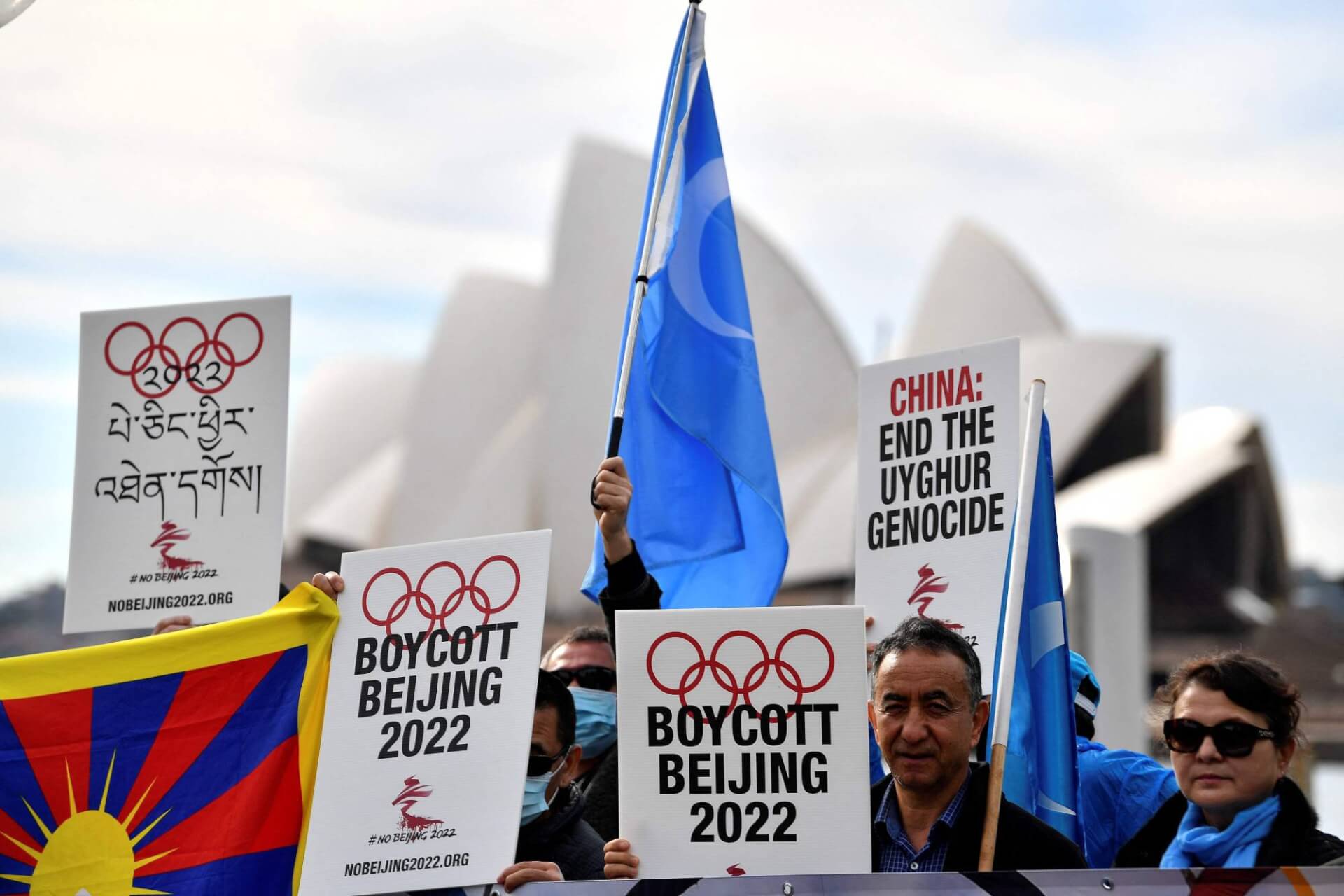On Wednesday, Australia joined the United States (US) in boycotting the 2022 Winter Olympics Paralympic Games in China due to human rights abuses in Xinjiang and Hong Kong. Australian athletes will participate in the Games; however, politicians and leaders will avoid attending the event.
Prime Minister (PM) Scott Morrison declared, “I very much separate the issues of sport and these political issues. [But] Australia will not step back from the strong position we have in standing up for Australia’s interests.”
NEW: Australia will join the U.S. in a diplomatic boycott of the 2022 Winter Olympics in China, Prime Minister Scott Morrison announces. https://t.co/BCJZfwsP9l pic.twitter.com/0JJOPRNDS8
— ABC News (@ABC) December 8, 2021
Morrison specified that the breakdown of relations between Australia and China and human rights abuses against the Uyghur community is a cause of concern. He noted that Chinese officials have rebuffed his administration’s efforts to discuss these human rights concerns and resolve their bilateral trade and diplomatic dispute.
Australia has also refused to sign the ‘Olympic Truce’ and is debating whether the Australian ambassador to China, Graham Fletcher, and other embassy staff, should attend the Games.
When questioned about whether a boycott of the Games would further deteriorate the relationship between the two countries and attract political and economic sanctions, Morrison said, “That would be completely and utterly unacceptable, and there would be no grounds for that whatsoever.” He added that Australia remains open to negotiating with China to address concerns over foreign interference legislation or foreign investment rules but would not pursue a policy that jeopardises its national interests.
Following the announcement, Australian Olympic Committee chief executive Matt Carroll tried to alleviate concerns regarding its impact on athletes and thanked the Morrison government for securing travel arrangements to Beijing. He said, “Human rights are extremely important, but the considered view of diplomats is that keeping channels of communication open is far more impactful than shutting them down.”
Meanwhile, Australian athlete Steven Bradbury warned against the boycott affecting athletes and said that they should not suffer due to political differences.
Meanwhile, human rights groups hailed Australia’s decision and pressed the Morrison government to take more stringent measures to target Chinese officials related to human rights abuses. China director at Human Rights Watch Sophie Richardson said, “Australia should now redouble efforts with like-minded governments to investigate and map out pathways to accountability for those responsible for these crimes and justice for the survivors.”
Earlier this week, the US also announced a diplomatic boycott of the Games because of the ongoing genocide and crimes against humanity in Xinjiang. Likewise, New Zealand has refused to send diplomatic representatives at the ministerial level to the Winter games over various issues, including the COVID-19 pandemic. Officials in Canada and Europe are currently discussing a similar diplomatic boycott.
"The Biden administration will not send any diplomatic or official representation to the Beijing 2022 Winter Olympics and Paralympic Games" over "egregious human rights abuses and atrocities in Xinjiang," Psaki announced Monday pic.twitter.com/wxiwUjmXMV
— Bloomberg Quicktake (@Quicktake) December 6, 2021
China has called the decision to boycott the Games a “pretentious act” and warned of countermeasures. The spokesperson for the Chinese embassy in Washington, Liu Pengyu, said, “Such a pretentious act is only a political manipulation and a grave distortion of the spirit of the Olympic Charter.” She added that the move came “out of nowhere,” as no invitation had been extended to the US politicians to begin with.
“The U.S. will pay a price for its wrong behaviors."
— Bloomberg Quicktake (@Quicktake) December 7, 2021
Chinese officials and Beijing residents are sounding off on the diplomatic U.S. boycott of the Winter Olympics https://t.co/36nAuKTLR7 pic.twitter.com/OIg9zpCfac
Similarly, Chinese Foreign Ministry spokesperson Zhao Lijian said the US would “pay a price for its erroneous actions” and told observers to “wait and see.”

